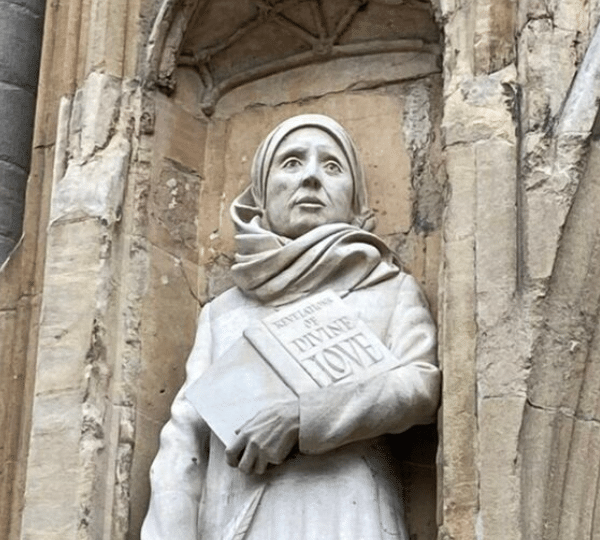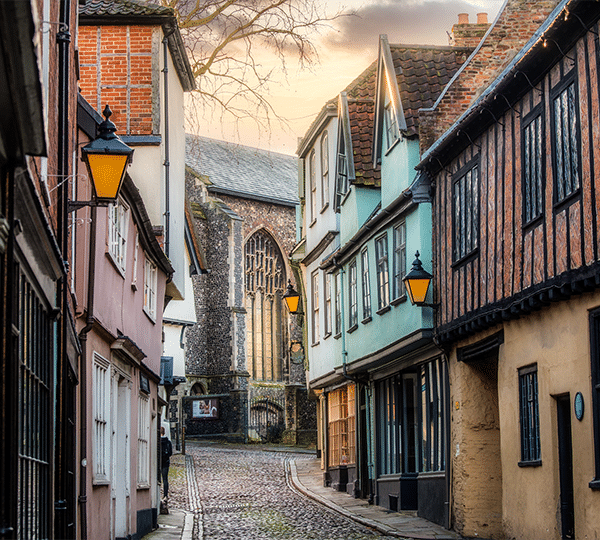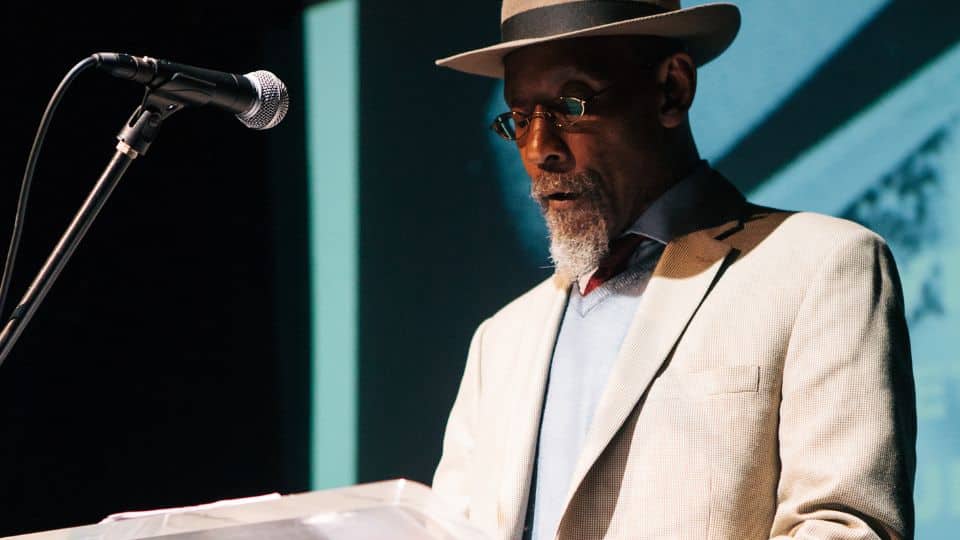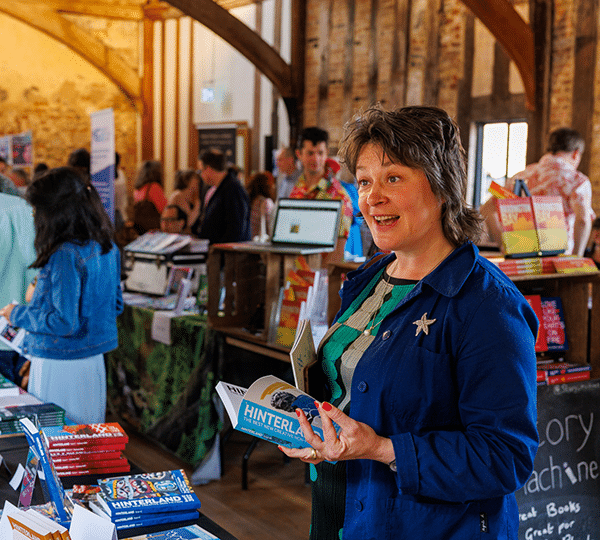Norwich: a City of Literature
Norwich has been a literary city for over 900 years: a place of ideas where the power of words has changed lives, promoted parliamentary democracy, fomented revolution, fought for the abolition of slavery and transformed literature.
In 2012, Norwich consolidated its position as England’s foremost literary city by becoming the country’s first UNESCO City of Literature, joining an elite international network that now includes Edinburgh, Melbourne, Iowa City, Dublin, Reykjavik, Kraków, Nottingham, Dunedin, Granada, Manchester and Prague.
Today, Norwich remains the English destination for poets, novelists, biographers, playwrights, translators, literary critics, historians, environmentalists and philosophers. A place for writers as agents of change.
Quick facts
- A centre for publishing in the East of England and one of the biggest national hotspots for publishers outside of London
- Home to a multiplicity of educational programmes with shared agendas across schools and communities using a large cohort of writers and artists
- The birthplace of world-renowned writers and thinkers, including Anna Sewell, Harriet Martineau and Thomas Browne
- A city where people spend more per head of population on culture than anywhere else in the UK. Literature, drama and poetry are integral to our cultural life
- Home to the oldest city arts festival in the country, Norfolk & Norwich Festival, and host to a year-round programme of literary and translation events with a global remit
- A city of words – bookshops, book groups, libraries, universities, publishers, printers, live literature and creative writing across all levels of local life
- Home to the British Centre for Literary Translation, founded by translator W.G. Sebald, a world model for the promotion of writing translated from and into many languages and cultures
- Home to National Centre for Writing, an international literature house which inspires communities through the power of writing, reading and literary translation, nurtures literary talent and hosts world-class events. National Centre for Writing looks after the UNESCO City of Literature designation in partnership with a range of stakeholders in the city.
Take a tour with us
A journey around Norwich begins on King Street, where the River Wensum connects the city to the sea and the mediaeval poet, Meir ben Elijah, protests against persecution. An alley nearby leads to the anchorite cell where Julian of Norwich writes her Revelations of Divine Love. You will find Dragon Hall on King Street; a medieval grade-I listed trading hall, and now home to the National Centre for Writing.
In the city, in the Haymarket, the bronze statue of Sir Thomas Browne, England’s most original mind at the brink of civil war, leads to The Forum, the 21st century home of the BBC and the Norfolk & Norwich Millennium Library. A few miles to the west of the city centre, you’ll find the University of East Anglia, home to the UK’s first MA in Creative Writing and the starting place for many of the writers who still live and work in Norfolk and Norwich, for visiting international fellows and creative writing students. Writers in exile, international delegates to conferences and festivals, young people on training schemes in the seminar rooms, creative entrepreneurs in the start-up studios, the City of Refuge, the British Centre for Literary Translation – a gateway to UNESCO’s Creative Cities Network and a transnational home for innovation, experiment and free expression for writers worldwide.
Image © VisitNorwich
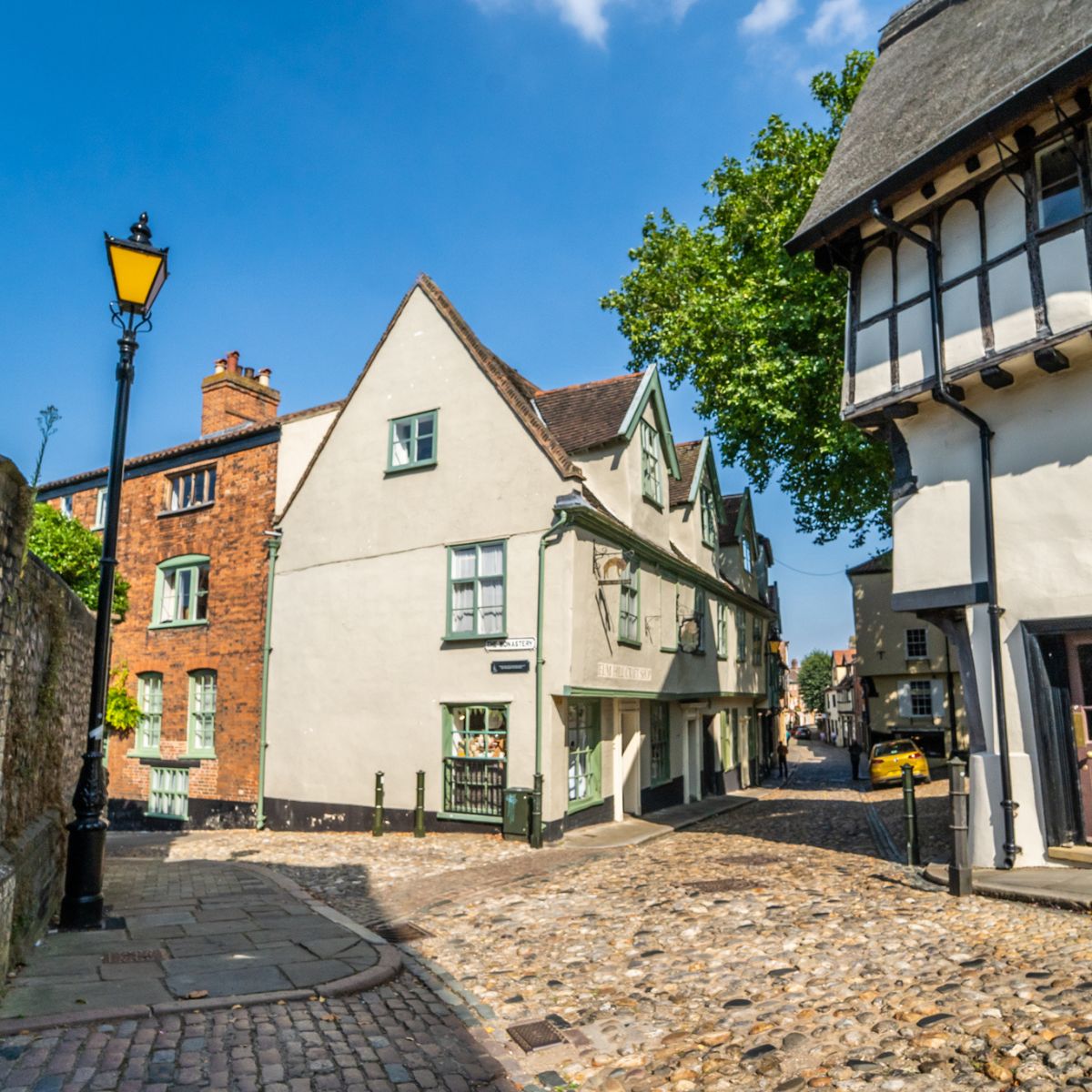
‘Norwich has turned itself into a world hub for literature’
A city of literature
People in Norwich spend more per capita on culture than anywhere else in the UK, and Norwich remains a destination for poets, novelists, biographers, playwrights, translators, editors, literary critics, social critics, historians, environmentalists and philosophers. It is a place for writers as agents of change.
A city of firsts
The first book written by a woman in the English language came from the pen of Julian of Norwich in 1395, when a series of visions led her to compose Revelations of Divine Love – an extraordinary contemplation of universal love and hope in a time of plague, religious schism, uprisings, and war.
In the sixteenth century, the first poem in blank verse was written here by Henry Howard, Earl of Surrey. The first English provincial library (1608) and newspaper (1701) followed, and Norwich was also the first place to implement the Public Library Act of 1850.
More recently, in 1970, Malcolm Bradbury and Angus Wilson founded the UK’s first Creative Writing MA at the University of East Anglia; Ian McEwan was the first graduate. In 2006, Norwich became the first (and still is the only) UK city to join the International Cities of Refuge Network, which was formed to promote free speech and support imperilled writers.
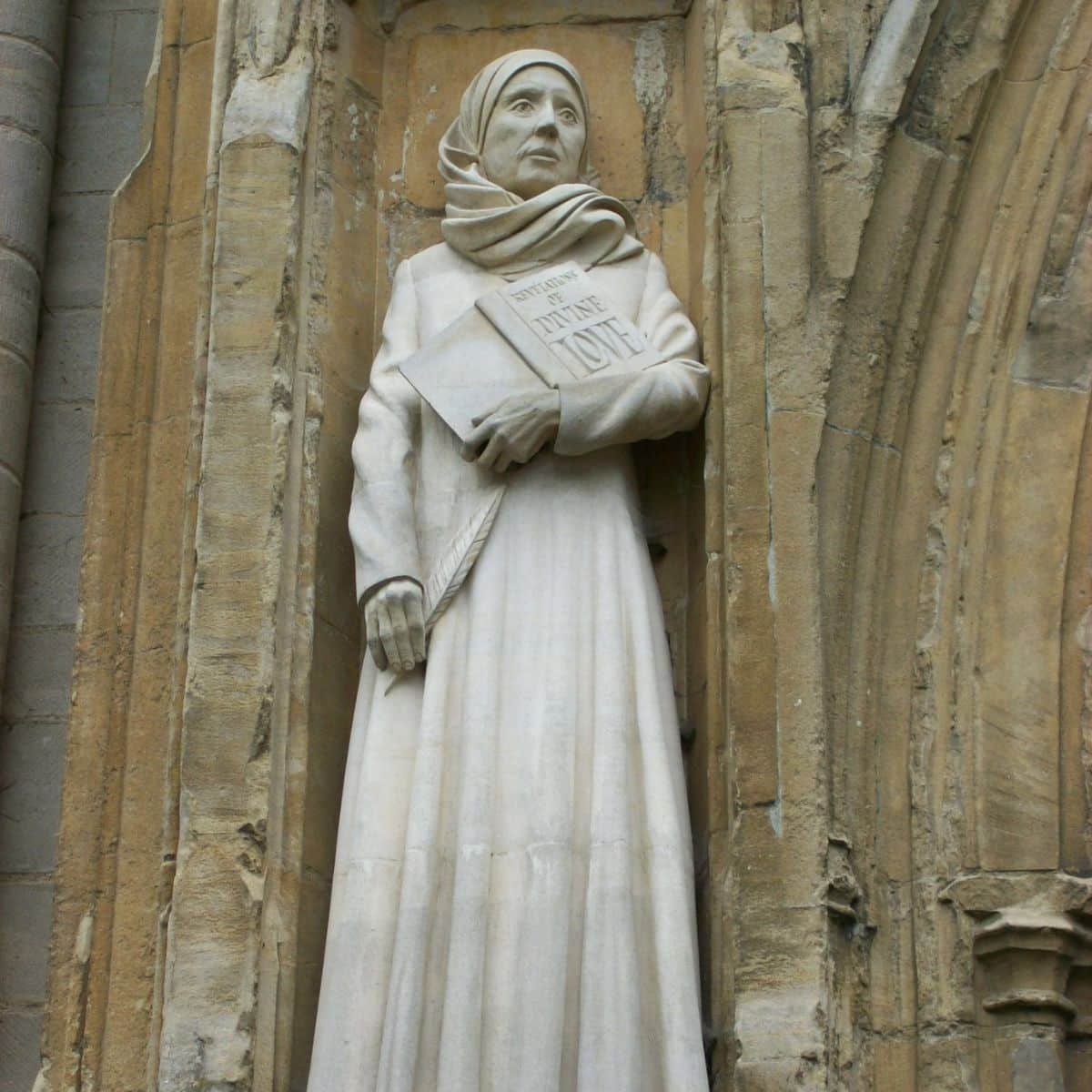
A city of libraries
The Norfolk & Norwich Millennium Library, housed in the magnificent Forum in the heart of Norwich, is one of the most-visited public libraries in the UK and lends more items than any other in the country. Across the city, Norwich Cathedral Library is home to more than 20,000 books (some dating back to the fifteenth century), while the John Innes Centre hosts a remarkable collection of natural history and rare books.
A city of publishers
The Jarrold family arrived in the East of England in the seventeenth century, bringing with them the art of printing and bookbinding. They published Anna Sewell’s global bestseller Black Beauty in 1877.
Today, Norwich remains the regional centre for publishing and is home to five per cent of the UK’s independent publishing sector, including Propolis, Gatehouse Press, Eggbox and Strangers Press. Relative to the region’s low population, this is also a higher percentage than anywhere else in the country outside London. They range from those that publish oral history memoirs, first novels, poetry pamphlets and first collections to Full Circle Editions, launched in 2009 by one of the world’s most eloquent advocates for wonderful writing and beautiful books, co-founder of Bloomsbury and a member of our steering UNESCO committee, Liz Calder.
There are 127 printers and lithographers in the county and 65 of these are located in Norwich.
Egg Box Publishing belongs to the poet, Nathan Hamilton, singled out by Canadian critic/poet, Todd Swift, as a leading member of ‘the Norwich School’. If such a school exists, it is a community of interest with a startling ability ‘to connect’, not least, to the hundreds of graduates from UEA’s School of Creative Writing who have remained in the city, including the founders of East Publishing and the leading UK poetry magazine, The Rialto.
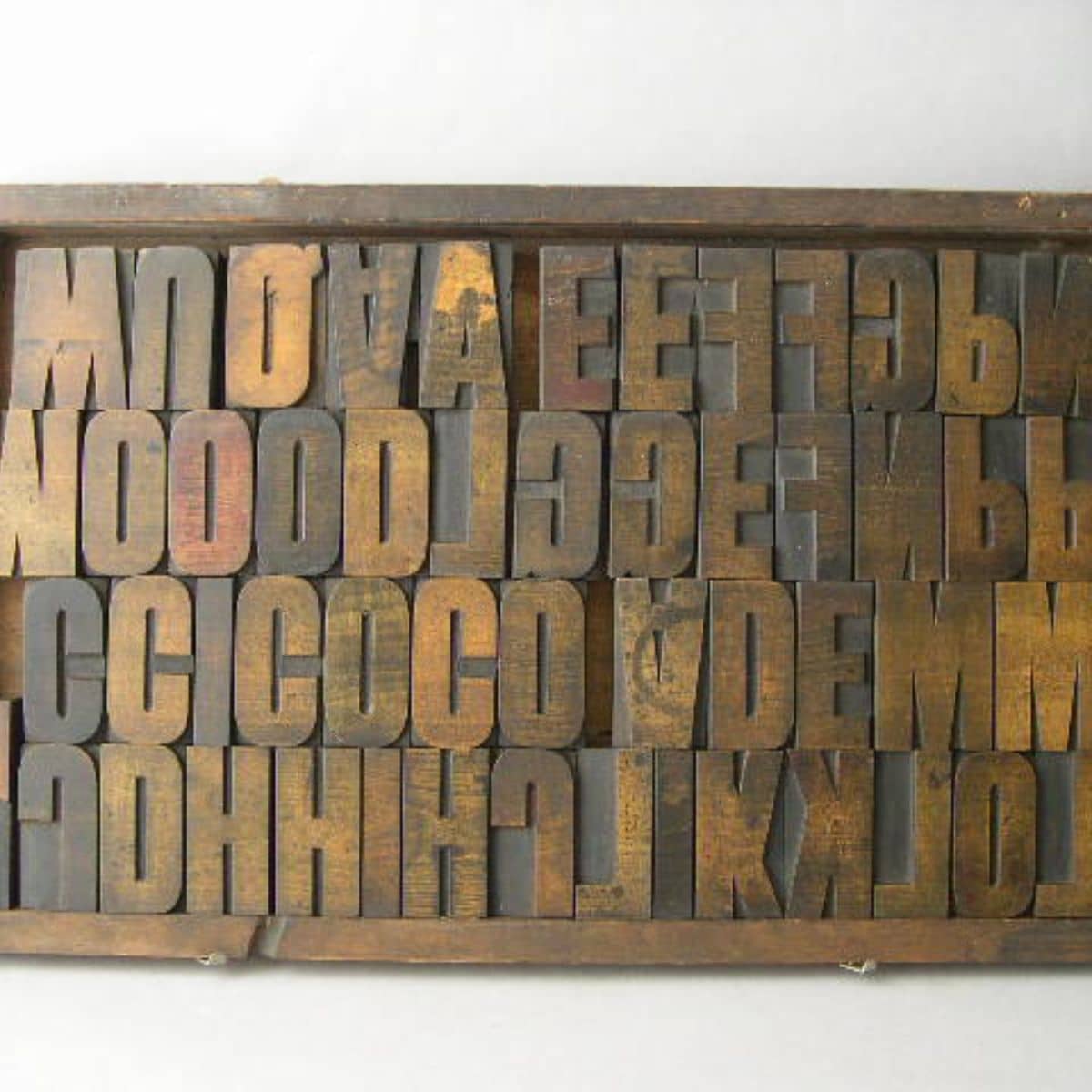
A city of independent bookshops
The Jarrold family opened Jarrold independent department store in 1823, which contains one of the foremost independent bookshops in the UK.
The Book Hive, opened in 2009 to national praise and in 2011 was named by The Telegraph as the Best Small Independent Bookshop in Britain.
Other fantastic independent bookshops in our fine city include Bookbugs & Dragon Tales, Tombland Bookshop, City Bookshop, The Dormouse Bookshop, J R & R K Ellis and Abstract Sprocket. We’re also lucky to have The Amnesty Bookshop and the Oxfam shop on Magdalen St.
Want to explore all the bookshops Norwich and Norfolk has on offer?
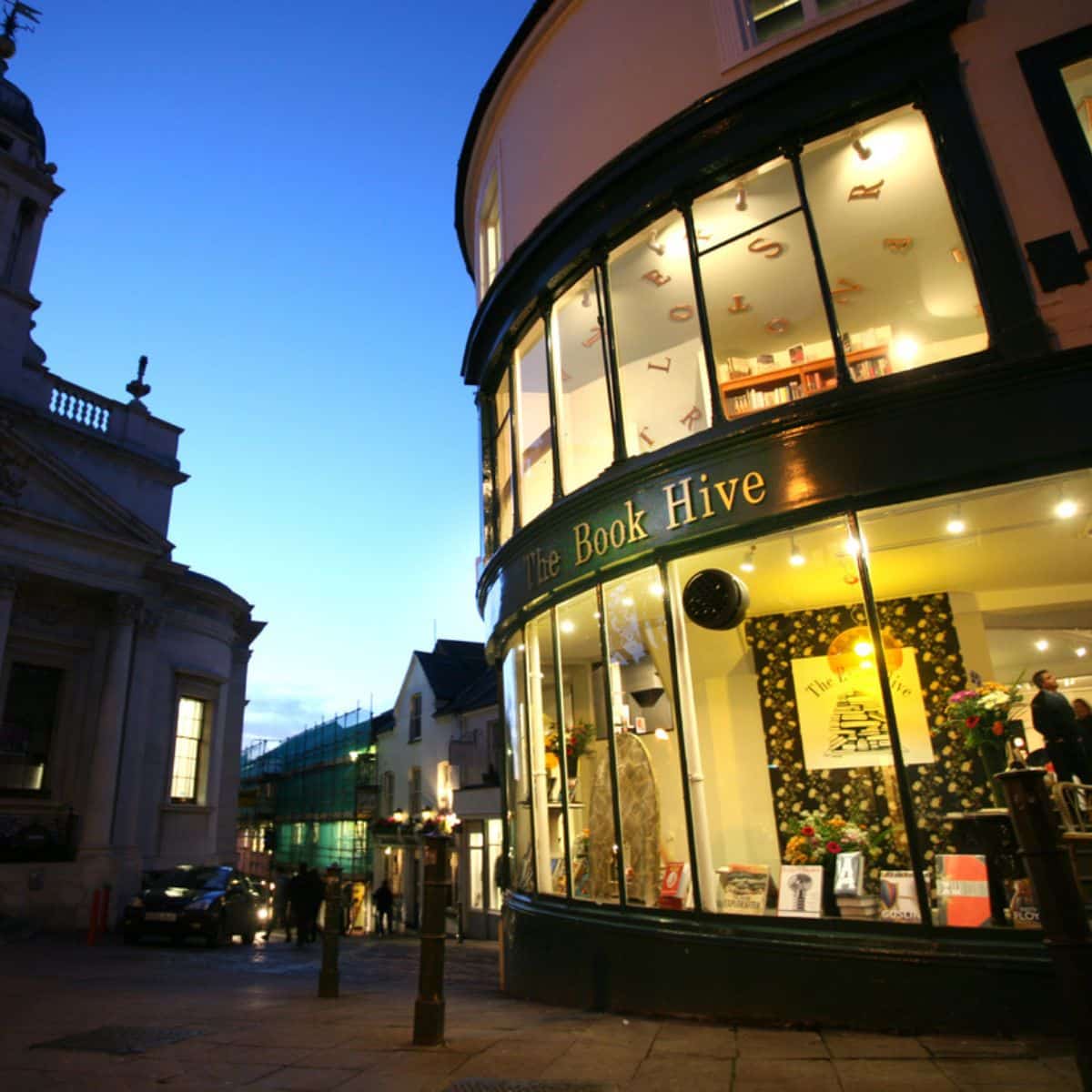
A city of writers
Following a successful start with Ian McEwan, the Creative Writing MA at UEA has established itself as the foremost course of its kind in the UK and a global hub for national and international literature. Graduates include three Booker Prize winners (Ian McEwan, Kazuo Ishiguro and Anne Enright), as well as a number of other major prize-winners including Tracy Chevalier, Joe Dunthorne, Emma Healey and Naomi Alderman.
The British Centre for Literary Translation at UEA, founded by the renowned author W.G. Sebald, is Britain’s leading centre for the development, promotion and support of literary translation from and into many languages.
A city of independent minds
Writers from Norwich have, quite literally, changed the world. Born just south of Norwich, Thomas Paine wrote Common Sense, a treatise that influenced the course of the American Revolution, and his Rights of Man is one of the most widely read books of all time.
Harriet Martineau, another radical and campaigning journalist, wrote promoting the causes of gender and racial equality, personal responsibility, fair economics and evidence-based science. Celebrated polymath Thomas Browne, prison reformer Elizabeth Fry and, more recently, humourist Stephen Fry have all called Norwich their home.
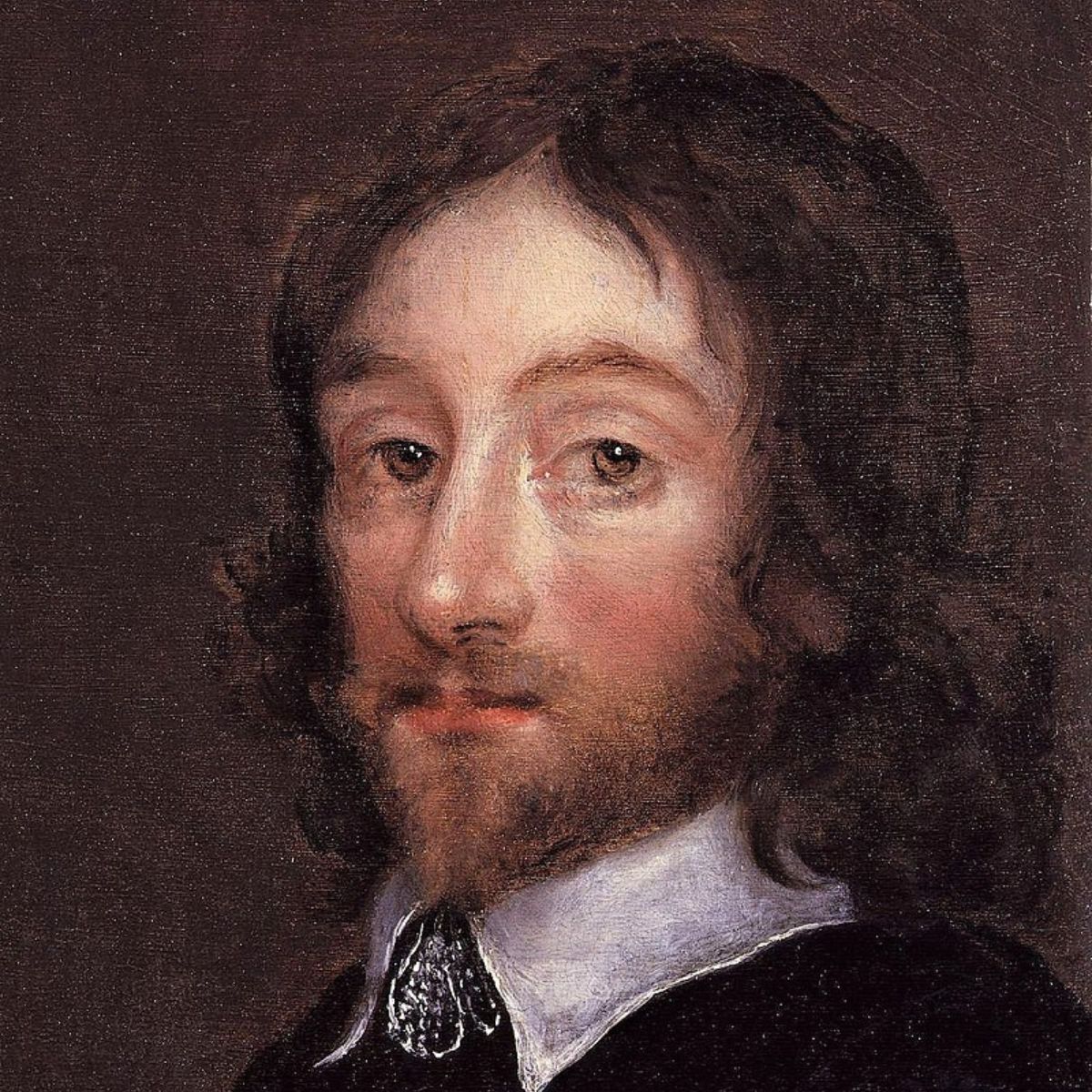
A city of refuge
Writers’ Centre Norwich (now the National Centre for Writing) established Norwich as the UK’s first City of Refuge for threatened writers, and was a founding member of the International Cities of Refuge Network (ICORN).
A city of international networks
The University of East Anglia pioneered Britain’s first creative writing MA and is home to a vast network of international writers, including fellowships for emerging talent in Africa, and India. National Centre for Writing has generated multiple networks of guest writers, publishers and international partnerships.
The Norfolk Record Office has been recognised by the International Council of Archivists as the most advanced archive centre in Europe and holds collections of Outstanding International Importance.
The city is also a world-class centre for new media and science writing and the British Centre for Literary Translation is a member of Europe’s RECIT network of literary translation centres and a contributor to UNESCO’s Global Alliance for Cultural Diversity.
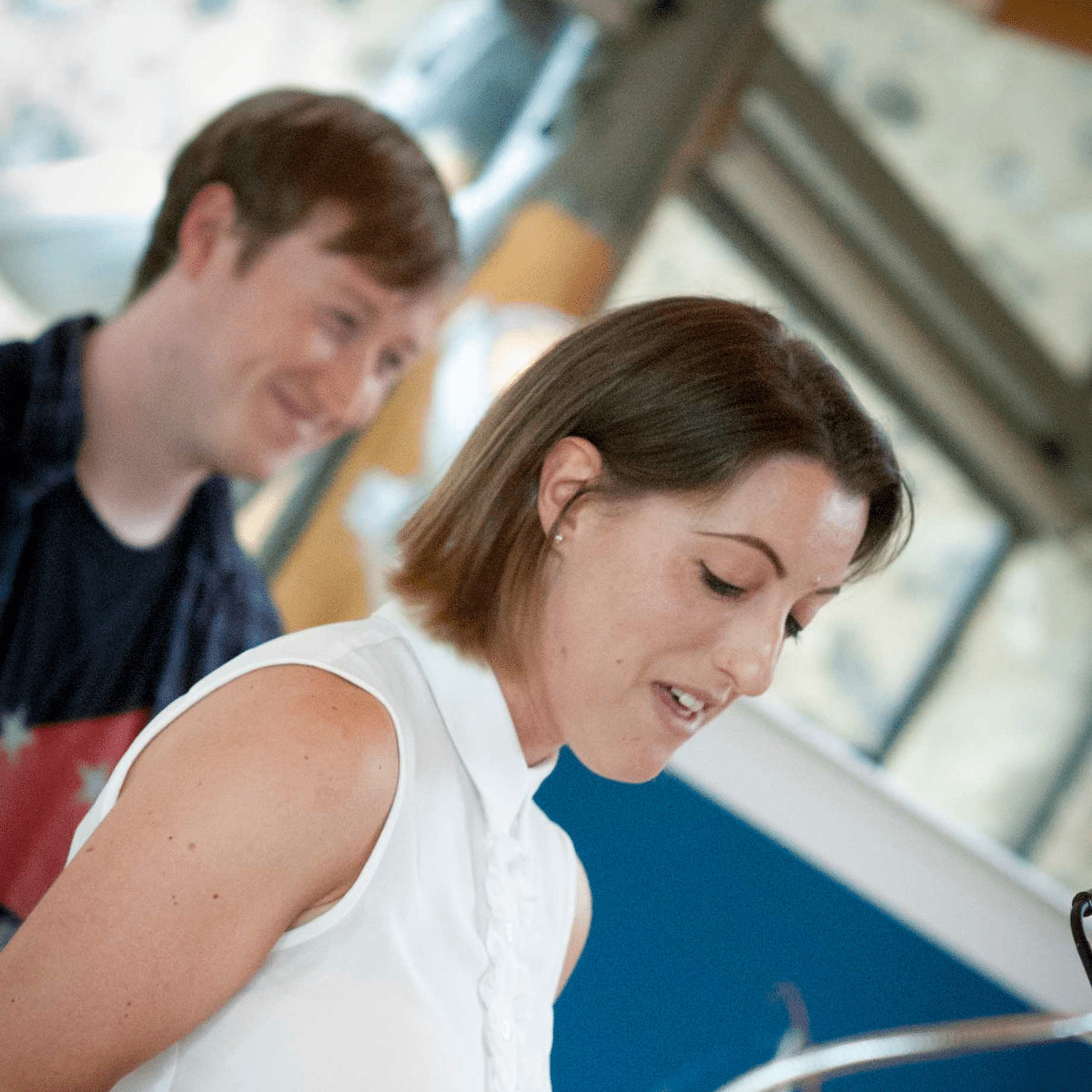
A city of performance
Norwich is the focal point for a thriving live literature scene, and is home to some of the best-loved performance poets in the UK, such as Luke Wright, Molly Naylor, Martin Figura, Tim Clare, Hannah Jane Walker, and John Osborne. TOAST regularly hosts live poetry events and workshops with the best poets in the UK.
A city of festivals
As a 21st-century creative city, Norwich is a rising star, home to the oldest city arts festival in the country, the internationally renowned Norfolk & Norwich Festival. It is a catalyst for the city’s wider social, cultural and civic aspirations: an inclusive experience that generates a shared sense of well-being.
The city is also home to Noirwich Crime Writing Festival, UEA Live, Young Norfolk Arts Festival, Norwich Film Festival and Norwich Science Festival.
Within an hour of Norwich are a multitude of other literature festivals, including the Essex Book Festival and Cambridge Literature Festival.
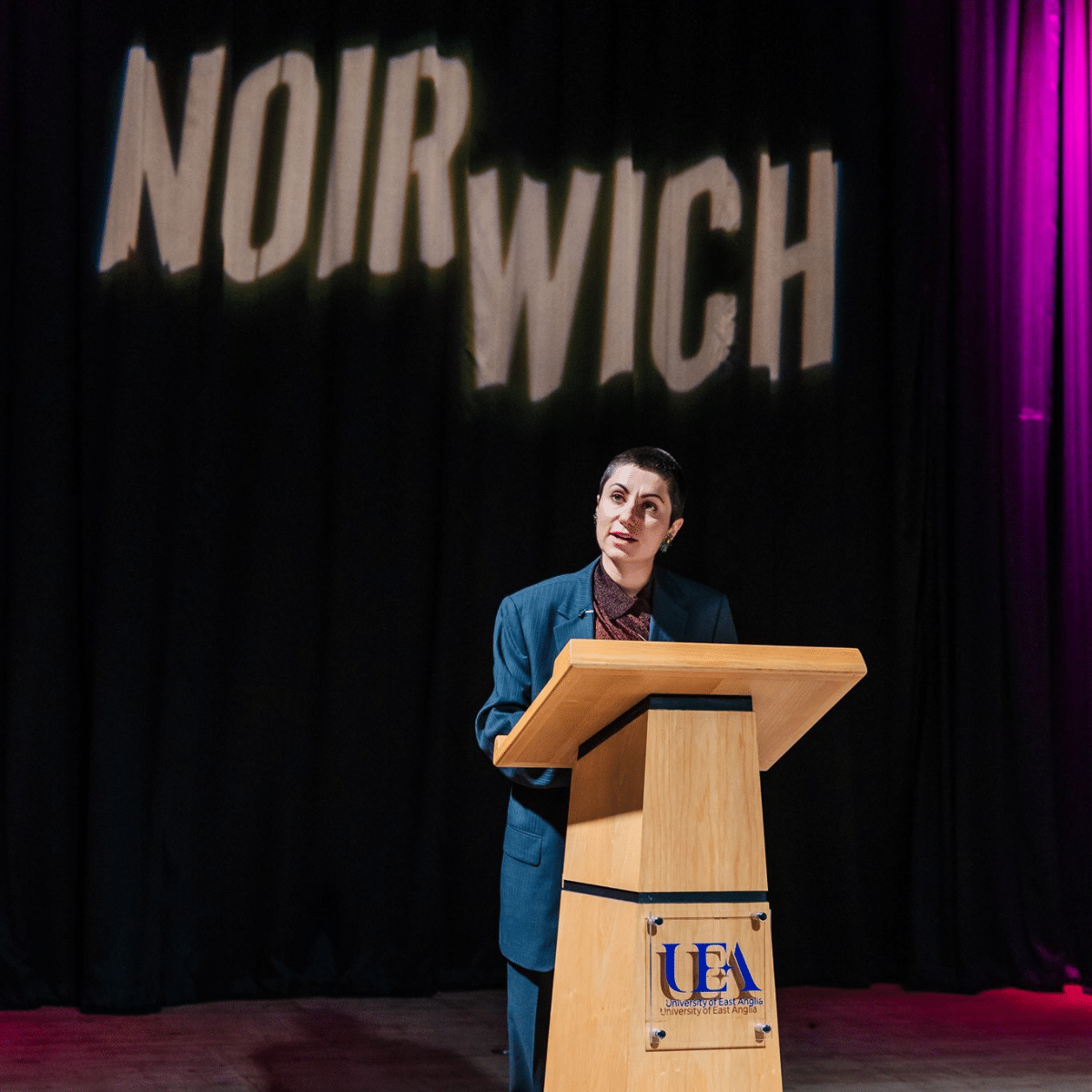
Discover more from Norwich UNESCO City of Literature



